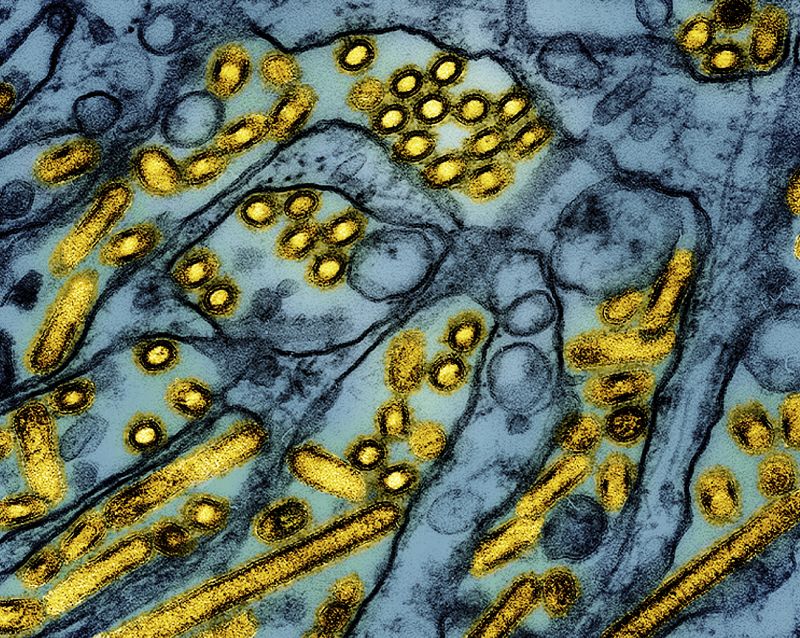A patient in Louisiana has been hospitalized with a severe case of H5N1 bird flu, the US Centers for Disease Control and Prevention said, the first such case in the United States.
The agency said Wednesday that the person was exposed to sick and dead birds in backyard flocks; this is the first US bird flu case linked to a backyard flock.
“It is believed that the patient that was reported by Louisiana had exposure to sick or dead birds on their property. These are not commercial poultry, and there was no exposure to dairy cows or their related products,” said Dr. Demetre Daskalakis, director of the National Center for Immunization and Respiratory Diseases at the CDC.
Federal officials declined to answer questions about the patient’s symptoms or their current condition. They instead referred all inquiries about the case to the Louisiana Department of Health, which is leading the investigation.
This virus, D1.1, is the same type found in recent human cases in Canada and Washington state and detected in wild birds and poultry in the United States. It’s different from B3.13, the type detected in dairy cows, some poultry outbreaks and other cases in humans around the United States.
The CDC said it’s working on additional genomic sequencing of samples from the patient in Louisiana and the investigation into the patient’s exposure is still underway.
- Sign up here to get The Results Are In with Dr. Sanjay Gupta every Friday from the CNN Health team.
Bird flu has been linked with severe human illness and death in other countries. No person-to-person spread has been detected. “This case does not change CDC’s overall assessment of the immediate risk to the public’s health from H5N1 bird flu, which remains low,” the CDC said in a statement.
There have been 61 reported human cases of H5 bird flu in the United States since April, mostly among dairy and poultry workers. But the Louisiana case shows that precautions should be taken by people with backyard chicken flocks, hunters and other bird enthusiasts, the CDC said.
“The best way to prevent H5 bird flu is to avoid exposure whenever possible,” the agency said in a news release. “Infected birds shed avian influenza A viruses in their saliva, mucous, and feces. Other infected animals may shed avian influenza A viruses in respiratory secretions and other bodily fluids (e.g., in unpasteurized cow milk or ‘raw milk’).”
“People who work with or have recreational exposure to infected animals are at higher risk of infection, and it’s extremely important that they follow CDC recommended precautions when around infected or potentially infected animals, a message that we will continue to magnify given recent cases,” Daskalakis said.
This is a breaking news story and will be updated.

